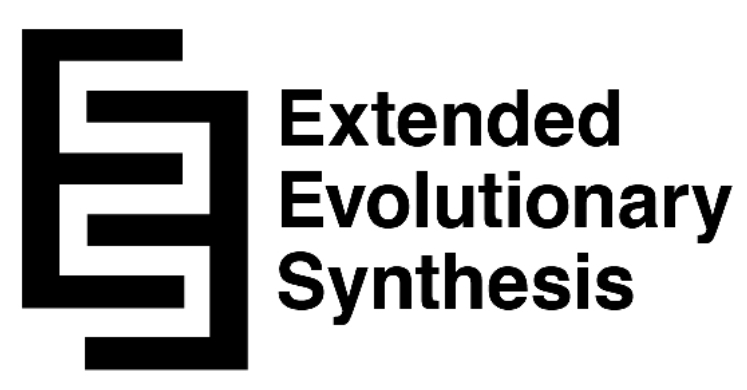The Evolutionary Gene and the Extended Evolutionary Synthesis
"The summary of the state of affairs on the 150th anniversary of the Origin is somewhat shocking: in the post-genomic era, all major
tenets of the Modern Synthesis are, if not outright overturned, replaced by a new and incomparably more complex vision of the key aspects of evolution. So, not to mince words, the Modern Synthesis is gone" -EV Koonin, cited by 252,652 researchers
The Evolutionary Gene and the Extended Evolutionary Synthesis
The article "The Evolutionary Gene and the Extended Evolutionary Synthesis" delves into a captivating debate within evolutionary biology. On one side, proponents of the "extended evolutionary synthesis" (EES) argue that the modern understanding of evolution, dominated by the "modern synthesis" (MS), falls short when it comes to accommodating epigenetic inheritance. On the other, opponents emphasize the weak evidence for epigenetic inheritance driving adaptive evolution in natural settings. Navigating this nuanced discussion requires unpacking the core concepts, exploring the arguments, and evaluating the potential implications of both sides.
The Modern Synthesis and Its Limits:
The MS, forged in the mid-20th century, established a framework for understanding evolution. It combined Darwinian selection with Mendelian genetics, emphasizing gene frequencies and natural selection as the driving forces of change. This framework yielded insights, explaining diverse phenomena like the origin of adaptations and speciation. However, the MS focused primarily on DNA as the sole unit of inheritance.
Enter Epigenetics:
Epigenetics is a complex field exploring heritable changes in gene expression that don't involve alterations in the DNA sequence itself. These changes can involve chemical modifications to DNA or its associated proteins, impacting gene activity without modifying the underlying genetic code. For example, DNA methylation can silence genes, while histone modifications can influence their accessibility.
EES Contentions:
The EES proposes that the MS fails to incorporate epigenetic inheritance mechanisms. Proponents argue that:
Epigenetic inheritance is widespread: Research has shown epigenetic modifications can persist across generations in various organisms, potentially influencing offspring phenotypes.
Lamarckian echoes: Epigenetic responses to environmental cues could offer a route for acquired traits to contribute to the evolution of subsequent generations, subtly echoing Lamarckian ideas.
Phenotypic plasticity and adaptation: Epigenetic changes can contribute to phenotypic plasticity, enabling organisms to adapt to their environment without altering their DNA sequence. This might offer a faster and more nuanced response to selective pressures compared to solely DNA-based evolution.
Challenges and Counterarguments:
Opponents of the EES raise several concerns:
Weak evidence for adaptive evolution: While epigenetic inheritance is documented, its role in driving long-term, adaptive evolution in natural populations remains unclear. Most cases involve relatively short-term effects or responses to environmental fluctuations, not permanent adaptations.
Distinguishing genetic and epigenetic effects: Differentiating between the impacts of epigenetic inheritance and underlying genetic variation in shaping phenotypes can be challenging, making it difficult to isolate the specific contribution of epigenesis to evolutionary change.
Confusing language and definitions: Ambiguity surrounding terms like "gene," "environment," and "phenotype" can lead to confusion and hinder clear communication and understanding of the debate.
The Evolutionary Gene as a Bridge?
The article posits that redefining the concept of the "evolutionary gene" could offer a potential bridge between these perspectives. Instead of limiting it solely to DNA sequences, a broader definition could encompass any heritable unit, including epialleles (stable epigenetic modifications). This conceptual shift could allow the MS framework to accommodate epigenetic inheritance without requiring a radical overhaul.
Implications and Future Directions:
The debate surrounding the EES highlights the dynamic nature of scientific understanding and the importance of continuous refinement of established theories. While the jury remains out on the full extent of epigenetic inheritance's role in evolution, further research is crucial to clarify its contribution to adaptation and phenotypic diversity. Additionally, ongoing dialogues that emphasize clear definitions and rigorous empirical testing are essential for advancing our understanding of evolutionary processes.
This analysis lays the groundwork for a deeper exploration of the topic. Further avenues could include:
Diving deeper into specific mechanisms of epigenetic inheritance and their potential evolutionary implications.
Examining case studies where epigenetic contributions to adaptation have been demonstrated.
Exploring the philosophical and conceptual challenges associated with redefining the evolutionary gene.
Discussing the potential impact of the EES on other fields, such as medicine and agriculture.
In conclusion, "The Evolutionary Gene and the Extended Evolutionary Synthesis" throws down the gauntlet, provoking a critical re-evaluation of our understanding of evolution. Whether the EES ultimately leads to a paradigm shift or a nuanced expansion of the MS remains to be seen. However, the ongoing debate promises to enrich our knowledge of the intricate dance between genes, environment, and the breathtaking diversity of life on Earth.



Comments
Post a Comment